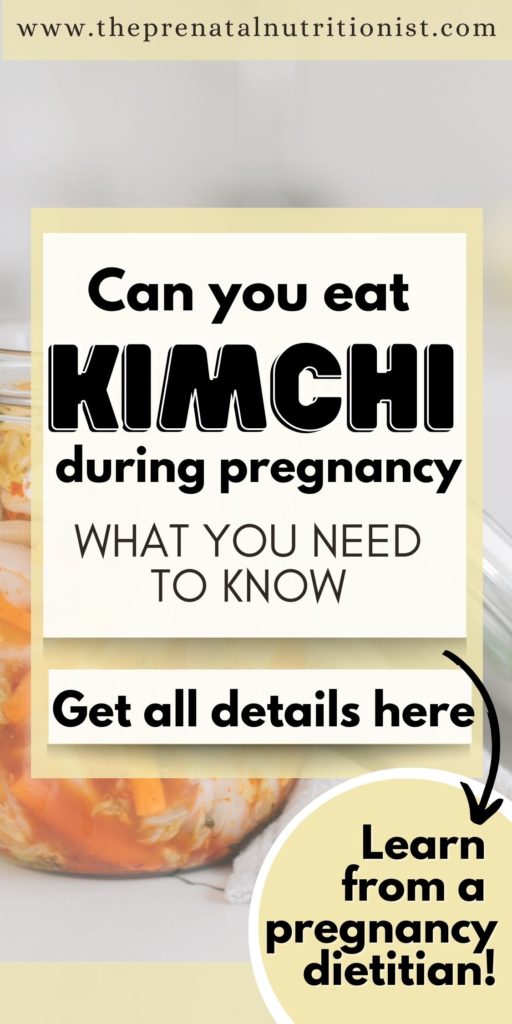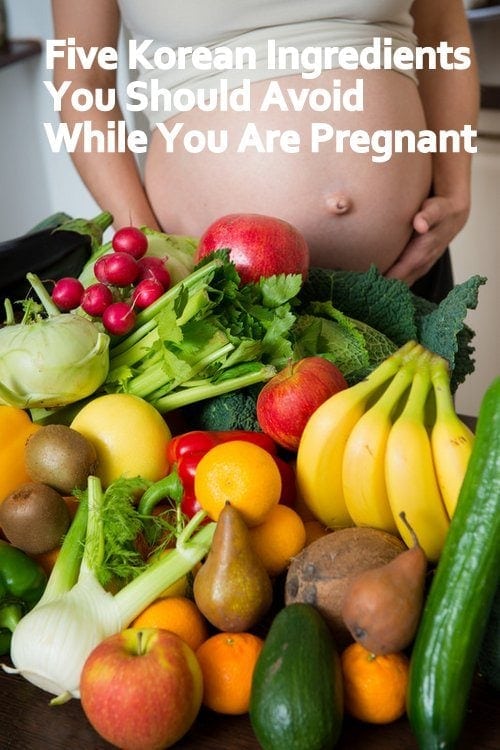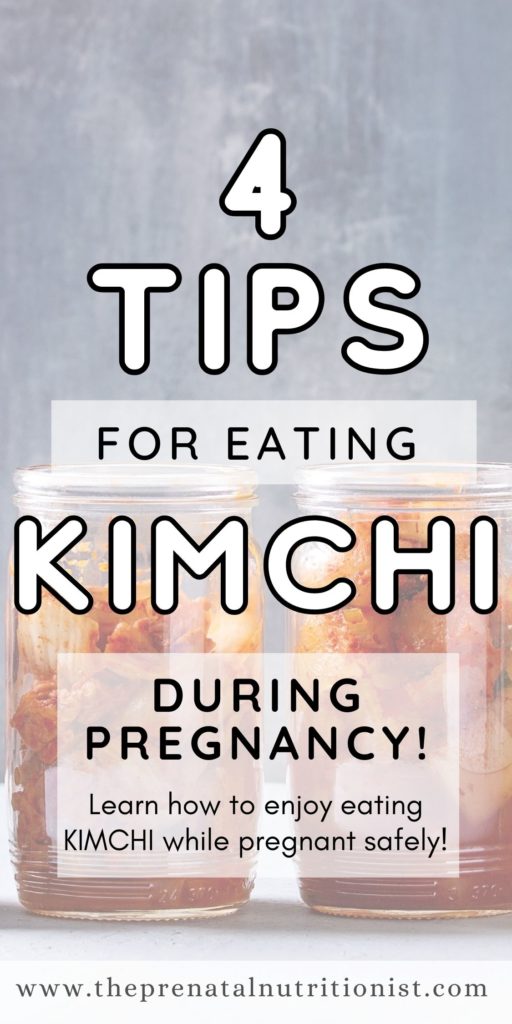Can You Eat Kimchi While Pregnant? A Guide
Can a pregnant woman safely indulge in the vibrant flavors of kimchi? The answer, in many cases, is a resounding yes, provided certain considerations are taken into account. This fermented Korean staple, known for its complex taste profile and potential health benefits, often sparks curiosity and concern among expectant mothers navigating the delicate balance of prenatal nutrition.
Kimchi, a cornerstone of Korean cuisine, is more than just a flavorful side dish; it's a powerhouse of nutrition derived from fermented vegetables. This traditional dish typically features napa cabbage, radishes, and a blend of spices, undergoing a fermentation process that cultivates beneficial probiotics. These probiotics are renowned for their role in promoting a healthy gut microbiome, which is particularly important during pregnancy, aiding in digestion and boosting the immune system. The fermentation process also generates vitamins and minerals, further contributing to the nutritional value of kimchi. However, like many dietary choices during pregnancy, careful consideration and adherence to food safety guidelines are paramount.
| Feature | Details |
|---|---|
| Definition | Fermented Korean side dish made from vegetables, typically cabbage (napa) and radish, along with various seasonings. |
| Main Ingredients | Napa cabbage, Korean radish, garlic, ginger, chili powder, scallions, fish sauce (optional) |
| Nutritional Benefits | Rich in vitamins (A, C, K), probiotics, antioxidants, and fiber. Supports gut health, immune function, and potentially lowers cholesterol. |
| Pregnancy Considerations | Moderation is key. Ensure proper preparation and storage to avoid contamination. Be mindful of sodium content and spiciness. Consider pasteurized options. |
| Potential Risks | Risk of bacterial contamination if improperly stored or prepared. High sodium content may be a concern for some. |
| Alternatives | If concerned, explore pasteurized kimchi, or consider other fermented foods like yogurt or sauerkraut. |
| Expert Recommendation | Many experts suggest that kimchi is safe to consume during pregnancy when prepared and stored properly and consumed in moderation. |
| Food Safety | Always check for signs of spoilage (unusual odor, discoloration, mold). Store kimchi properly in the refrigerator. |
| Reference Website | Healthline.com |
When navigating the culinary landscape during pregnancy, food safety is an undeniable priority. Kimchi, being a fermented food, carries potential risks related to bacterial contamination if not handled correctly. To mitigate these risks, pregnant women should prioritize kimchi that has been properly prepared and stored, ensuring it is fresh and free from any signs of spoilage. Choosing kimchi from reputable sources and adhering to recommended storage guidelines can significantly reduce the chances of encountering harmful bacteria. It's also worth considering the sodium content, as kimchi can be relatively high in sodium, which may pose a concern for pregnant women who are prone to high blood pressure or related complications.
The method of fermentation is a core element of what makes kimchi a healthy food. The fermentation process isn't just about flavor; it transforms the vegetables, creating probiotics. Probiotics introduce beneficial bacteria into the gut, contributing to a healthy digestive system. This is particularly significant during pregnancy, as a healthy gut microbiome is linked to overall well-being for both the mother and the developing fetus. Moreover, kimchi is a good source of vitamins and minerals. It is rich in vitamins A and C, which are essential for immune function and general health. It also contains antioxidants, compounds that help protect cells from damage.
Beyond these specific benefits, the broader context of a balanced diet during pregnancy needs to be taken into account. Pregnancy increases the need for essential nutrients. The presence of vitamins, minerals, and other nutrients in kimchi can definitely fit within a well-rounded diet. Yet, because it's a fermented product, it is not appropriate to consume large amounts. It is important to take a holistic view of nutrition. Incorporating a wide array of nutrient-rich foods, while making sure to avoid any food that may pose a risk to the developing fetus.
For those with specific concerns about kimchi, there are other alternatives to consider. While kimchi has its own advantages, these alternatives provide similar health benefits while minimizing the potential risks. Other fermented foods, like yogurt, sauerkraut, and miso soup, can be incorporated into the diet, offering valuable probiotics. When purchasing these products, it is essential to check that they have been pasteurized. The pasteurization process helps kill harmful bacteria, making it a safer choice for pregnant women. As with kimchi, moderation is key. Incorporating these options in reasonable amounts allows pregnant women to maintain a healthy gut microbiome.
The decision to include kimchi in a pregnancy diet should always be made with informed consent. The first consideration is individual health history. Expectant mothers with pre-existing health conditions or concerns should always consult with their healthcare provider. This will help to determine if kimchi consumption is appropriate. Additionally, understanding the specific preparation methods and storage practices of the kimchi being considered is essential. Always, if you can, find out how it was made. Proper preparation ensures that the kimchi has been prepared in sanitary conditions, reducing the risk of bacterial contamination. This includes using fresh ingredients, thorough cleaning of equipment, and proper fermentation techniques.
When you crave kimchi when pregnant, moderation is key. You can add it to your daily meal, but don't add it too much. To enjoy kimchi safely, it is wise to add it in smaller portions. This approach reduces the risk of potential complications, while still providing the desired flavor and nutritional benefits. This advice aligns with the general principles of pregnancy nutrition, which encourages a balanced intake of various foods rather than focusing on one single food item.
The question of whether it is safe to eat kimchi in Korean restaurants arises. This is because it offers a different dining experience and requires careful consideration of potential food safety concerns. It is essential to ensure that the kimchi is freshly prepared and properly stored. Another important factor is the restaurant's hygiene practices. Therefore, it is always a good idea to make inquiries about their sourcing and preparation methods. Ultimately, consuming kimchi in Korean restaurants is a risk-assessment, and it must be weighed against personal comfort levels.
One of the aspects of kimchi that expectant mothers appreciate is its versatility. Kimchi can be added to numerous dishes, adding a depth of flavor. This spice can enhance the flavors of various dishes. This makes it a convenient and enjoyable way to incorporate probiotics and nutritional benefits. Whether it's a stir-fry, a soup, or even a sandwich, kimchi adds an exciting flavor that can be adapted to many tastes. This flexibility helps pregnant women maintain variety in their diet.
In considering whether to eat kimchi during pregnancy, the presence of sodium should be a concern. Sodium is a nutrient, but an excessive intake can lead to high blood pressure and other health complications. The consumption of kimchi can contribute to sodium intake. Therefore, pregnant women should be aware of the sodium content in their chosen kimchi. Reading labels and being conscious of the overall sodium intake throughout the day are prudent strategies. These steps help in monitoring and managing the effects of sodium on blood pressure and overall health.
The core of a diet during pregnancy should be based on food safety and a balanced approach. Moderation, along with making informed food choices, is necessary to ensure the safety of the mother and the developing fetus. This approach can include kimchi as a part of the pregnancy diet. So, yes, pregnant women can eat kimchi, but it should be eaten with certain precautions and considerations. Food safety is the utmost priority.



